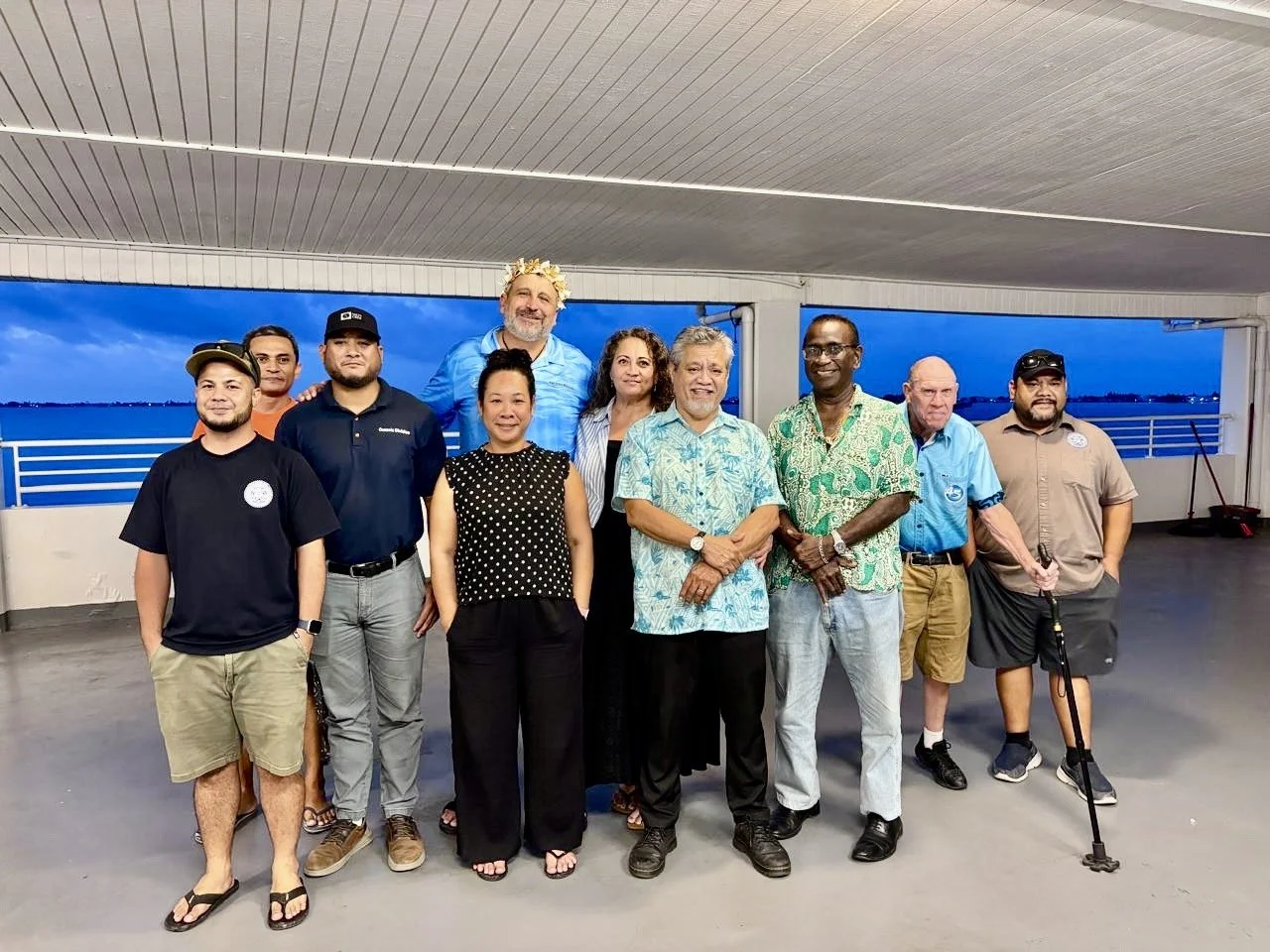And yes... today marks my last day out of a total of 700, spanning over six and a half years, as my three-times-a-year work placement as the NZ MFAT-funded “Offshore Fisheries Advisor” Offshore Fisheries Advisor” with the Marshall Islands Marine Resources Authorities (MIMRA) the Marshall Islands Marine Resources Authorities (MIMRA) has now concluded.
As I have stated many times publicly, this has been my most rewarding role as a consultant, both professionally and personally.
I will forever be grateful to MIMRA and each member of the management and oceanic fisheries team for the support and friendship they have shown me since we began in the old building, with the setup of the first small whiteboard for port operations planning to today, where we have one of the best fisheries administration facilities in this part of the world.
From day one, I have stated that I don’t carry the “gospel” of what works; I just have in my memory all the mistakes I’ve made and seen made, which gives me knowledge of what doesn’t work. What works is what we discovered together.
Today, every tuna passing through Majuro (historically the busiest tuna port in the world) has been assessed for its legality and properly recorded before leaving port, and this is not just a motto or policy goal… It is a reality that very few ports worldwide can claim. Moreover, your operations are entirely self-sufficient and efficient throughout the year.
It is my professional opinion that RMI is currently the most efficient, dedicated, thorough, and transparent port State in the Pacific and perhaps among the 55 countries I have worked with globally. For their efforts, MIMRA received the international Stop IUU Fishing award; FFA has based its PSM framework and e-PSM tool on what MIMRA implemented here. Homegrown technological innovations like hanging-scale-based monitoring (and there is more to come) are now being expanded into other Pacific ports. MIMRA is leading the regional push for transshipment reform, which is badly needed in the WCPFC, and I will continue to be involved as an advisor, regardless of any contract I may or may not have.
While it is somewhat sad to be leaving RM, it has been a significant part of my life, and I have formed deep relationships here. As a fitting conclusion, with leadership from MIMRA and support from Conservation International, we conducted a workshop involving all stakeholders (MIMRA, CI, AGO, Labour, Immigration, IMO, and Industry), who agreed to incorporate the FFA labour standards HMTCs for licensing into RMI regulations. They also agreed to promote the adoption of new crewing rules and amendments to the Labour (Non-Resident Workers) Act, scheduled for 2026, to prepare for the incorporation of the WCPFC Labour Standards CMM in 2028. Additionally, the MIMRA board endorsed this on Friday, so progress is underway. Consequently, there will be a need to develop a crewing policy and crew contracts aligned with the requirements of ILO WFC 188 to enable vessels to fish within the EEZ. As a former migrant fisher myself, reaching this point has been personally meaningful.
Now, the fact that I won't be visiting as often as before doesn't mean I'm no longer involved… (Not easy to get rid of me!) MIMRA is keen to continue having me on board as an advisor and has requested the NZ government to continue the bilateral support… so let’s see.
In any case… I'm sure this is not goodbye… but see you later.
Komol tata, Gracias and Ngā mihi nui MIMRA
